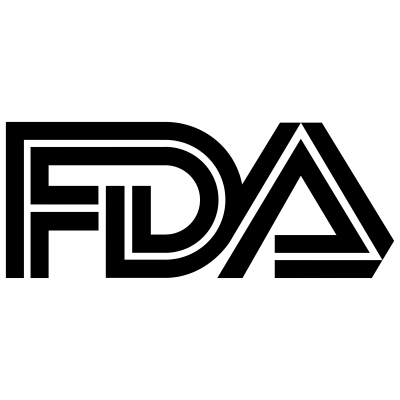Sports science shows Creatine as one of the most sought-after fitness supplements because it delivers improved athletic performance while building muscle bulk alongside enhanced energy production. Supplements required for exercise need proper hydration, although many users ignore water consumption. Your success with creatine supplements requires not just adequate usage of benefits, but also the prevention of unwanted effects. By keeping your water intake correct, you can effectively control and prevent any potential side effects.
The Basics of Creatine and Its Role in the Body
Naturally found creatine exists throughout certain foods, including fish and meat; the pancreas, liver and kidneys each fulfill their synthesis role. Your body saves its creatine collection in muscle tissue for generating adenosine triphosphate (ATP,) which serves as the body's energy supply. ATP is the primary energy currency of the cell, and creatine supplements enhance your muscle's ability to absorb more of this substance, allowing better energy production during intense workout periods.
Your body will absorb more water into your muscles while you satisfy its creatine saturation needs. When your body experiences these critical moments, the priority for hydration increases twice. When athletes consume creatine supplements while dehydrated, muscular cramps and fatigue develop, along with decreased athletic performance.
Why Hydration Matters When Taking Creatine
Buy Now
Your body requires increased water daily after creatine absorption because it draws moisture into your muscles. Your muscle cells receive hydrated water from creatine, leading your body to demand increased water consumption. Inadequate water intake results in dehydration that damages both the quality of physical movement and body health. Hydration enables your body to control temperature and support joint health and nutrient transfer, which remains essential for athletic persons.
Not drinking sufficient water can lead to headaches, dry mouth, and dizziness, which can potentially strain the kidneys. Users benefit from professional advice recommending maintaining a balanced ratio of creatine intake to water consumption.
How Much Water Do You Need Daily?
The National Academies of Sciences states that adult men need 3.7 litres of water daily, and adult women need 2.7 litres daily. Water requirements vary among individuals based on age, weight, activity levels, and geographic location.
People should drink 8-16 ounces of water every time they consume 3-5 grams of creatine in their supplement routine. The recommended daily intake of 5 grams of creatine means you should drink 16 ounces of water beyond your regular fluid intake. The proper intake of creatine and sufficient water intake helps ensure optimal absorption and keeps your body well hydrated.
Hydration Tips for Creatine Users
- Start Your Day with Water: Adequate water consumption in the early morning helps prevent dehydration when you consume creatine.
- Carry a Water Bottle: A movable water storage system allows you to sip water anytime without waiting for meals.
-
Hydrate During Workouts: Drinking water before exercise and during and after physical activity helps restore fluids lost in your body and enhances the effects of creatine.
- Set Reminders: You should utilize apps or set alarms as water-drinking reminders because forgetfulness is daily.
The Risks of Overhydration
Excessive water intake during hydration is crucial, yet it may result in two medical problems: overhydration and hyponatremia. Overhydration, or water intoxication, occurs when you drink more water than your kidneys can excrete, leading to a dilution of sodium in your body. This can weaken blood sodium levels to the point of confusion, nausea, and seizures. To avoid this, you should maintain body signal detection for thirst and control excessive water consumption.
Your water intake should be determined by whether you move and how much creatine you take daily. You should maintain body signal detection for thirst and control excessive water consumption.
Hydration Myths and Facts
Public understanding of hydration features multiple popular misconceptions involving creatine intake. Let's debunk a few:
- Myth: A creatine regimen requires you to consume vast amounts of water. Fact: Your body's water demand rises due to creatine intake, but staying hydrated with the amount that matches your creatine usage is acceptable.
- Myth: Drinking water during exercise causes cramping. Fact: Muscle cramps are less likely when you stay adequately hydrated during physical activities.
- Myth: You cannot detect dehydration until you start feeling thirsty. Fact: A dehydrated state begins to develop before you experience genuine thirst.
Creatine Loading Phase and Water Intake
Specifically, during the creatine supplementation loading phase, which lasts 5-7 days, you need to administer 20 grams of creatine daily in 4 doses of 5 grams each. Because you take higher amounts of creatine, you need to consume more water during this period.
For the best results when supplementing with 5 grams of creatine, you should consume 16 to 32 ounces of water daily. Regularly distributing your water intake throughout the day will prevent water retention while maintaining hydration.
Post-Workout Hydration with Creatine
The body requires recovery time from your workout while demanding immediate fluid replacement. After finishing your workout routine, consume at least 16-20 fluid ounces of water with creatinein. Electrolyte additions can improve hydration and improve muscle recovery.
Hydration after workouts replaces the sweat fluids your body loses, making creatine more effective for your muscles to accept. This practice minimizes muscle discomfort and helps your body regain full strength more quickly.
Listening to Your Body’s Signals
Your body generates various warning signs that let you know it needs water. Be aware of dry mouth symptoms, fatigue, and dark-coloured urine. These research-based indicators will assist you in determining your correct water consumption while using creatine. By listening to your body's signals, you can feel empowered and in tune with your body's needs, ensuring you maintain the right level of hydration.
Combining intense exercise, warm temperatures, and a diet abundant with salt will increase your body's water needs. Knowing these factors will allow you to reach your best hydration levels.
Hydration-Friendly Foods for Creatine Users
Drinking water supplementation of your hydrating needs can be supported by water-rich foods in your daily diet. Some excellent options include:
Fruits: Watermelon, oranges, and strawberries
Vegetables: Cucumbers, celery, and lettuce
Soups and Broths are water-rich foods that keep you hydrated and supply nutrients.
Including these hydrating foods in your diet not only maintains complete hydration but also adds to your creatine supplement protocol. By incorporating these foods, you can feel encouraged and motivated to maintain your hydration levels, enhancing the effectiveness of your creatine supplementation.
Conclusion
Your creatine dosage will reach its maximum potential with hydration as its essential foundation. Developing an awareness about your water needs alongside consistent water consumption allows you to get the most out of creatine supplementation while controlling harmful side effects. Athletes, bodybuilders, and fitness enthusiasts who prioritize hydration can effectively meet their performance targets with improved health results.
You should consume about 3 to 4 litres of water daily, but modify your water intake based on your creatine dosage and how active you remain. Look for hydrating habits and foods to incorporate into your daily routine, and pay attention to your body's indications. The proper strategy enables people to leverage creatine's benefits while maintaining physical health.







